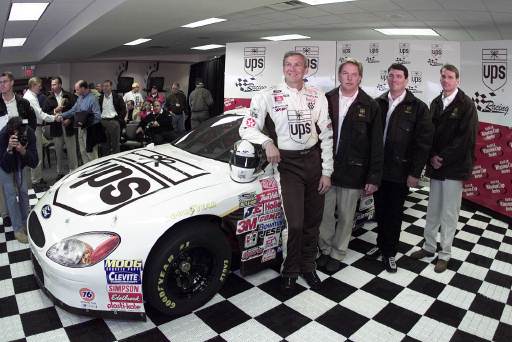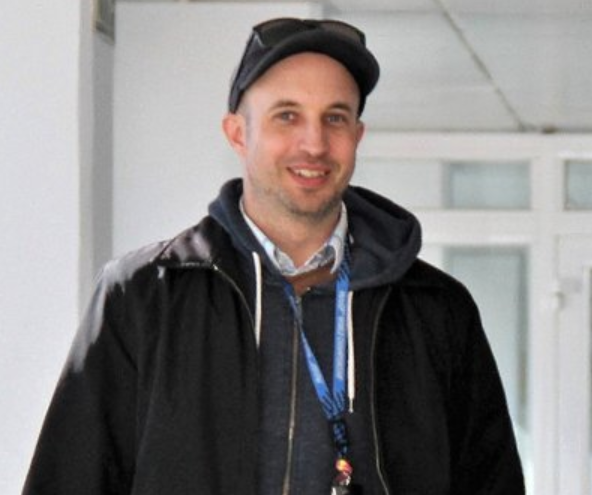Benson relying on Hendrick Power for Harrah's 500.
One of the keys to #10 Valvoline Pontiac driver Johnny Benson's early season success in 2001 revolves around the work of Hendrick Motorsports.
Benson and his Valvoline Racing teammates see Hendrick's Jeff Gordon, Terry Labonte, and Jerry Nadeau as rivals on the track, but they regard Hendrick Motorsports as a partner in what goes on under the hood of Benson's race car.
The Valvoline Racing team along with teammate Ken Schrader's #36 Pontiac team buy their engines from Hendrick Motorsports. The alliance with Hendrick has paid dividends already this year.

One of the keys to #10 Valvoline Pontiac driver Johnny Benson's early season success in 2001 revolves around the work of Hendrick Motorsports.
Benson and his Valvoline Racing teammates see Hendrick's Jeff Gordon, Terry Labonte, and Jerry Nadeau as rivals on the track, but they regard Hendrick Motorsports as a partner in what goes on under the hood of Benson's race car.
The Valvoline Racing team along with teammate Ken Schrader's #36 Pontiac team buy their engines from Hendrick Motorsports. The alliance with Hendrick has paid dividends already this year.
On March 11 at Atlanta, the three Hendrick drivers along with Benson and Schrader finished in the top eight. Benson and his crew chief James Ince hope for a repeat performance from the Hendrick power plants this weekend at Texas Motor Speedway as they prove that their customer engines are on par with the in-house engines.
"Atlanta was a real good day for us," recalled Scott Maxim, Director of track support for Hendrick Motorsports. "After the race we didn't know if we were lucky or we had real good engines. Everything looked really good. Our engine program at those tracks really shines. Texas is very similar. There is nothing that replaces Atlanta from a speed standpoint and an RPM standpoint. Every other track we go to is going to have more of an RPM drop than Atlanta. Texas, Charlotte, Michigan and California fit into that same mold. We have a good package for those type tracks.
With the recent success, the #10 team prefers the current arrangement to initiating a costly and labour-intensive engine program.
"Heck yes we hope Hendrick engines have as good a day at Texas as it did at Atlanta a few weeks ago," commented Benson. "Getting all five cars in the top eight at Atlanta is tough to beat. I hope we get the same kind of results when we run at Texas.
"Our Hendrick engines have been great. No doubt. They've got us to second in points so far so we have no complaints. They give us great horsepower, great service on the engines at the shop and everything at the track as well. They do a ton of research, they have the latest machinery, and most importantly they have a lot of great people in their program. Plus they continue to do a lot of research and development and that's the key to staying on top as well. Sometimes engine programs fall behind but I don't think they ever will."
Benson then gave his opinion on suggestions that he is getting the fourth best engine: "I don't believe that," he said. "I think we are close to what their three teams are getting. They say they fall within just a few percentage points. There have been occasions where we have finished ahead of their cars so that tells me what they are giving us is pretty close to what their guys are getting."
"The #10 and #36 aren't development teams for us," added Maxim. "We try to build an engine package that is consistent among all of our teams. At the customer's discretion we might try some things that are a bit higher risk. Generally that is done with an agreement on both sides. We try to take advantage of that if we can."
"A good engine is a combination of good horsepower and reliability," added Benson. "It doesn't matter much horsepower you have if it isn't going to live and it doesn't matter how long it lives if you keep getting beat down the backstretch. The trick to engine building is finding both. That's what makes a great engine."
Benson then faced the eternal question: Which is more important, the engine or chassis?
"Well, it doesn't matter how good the handling of a car is when the engine blows up and it doesn't matter how much horsepower you have if you can't get the car turned in the corner," explained Benson.
"It's always a struggle between the engine guys and the chassis guys on a race team. The chassis guys blame the engine guys if the car is slow and the engine guys blame the chassis guys. We try not to do that on race teams but that is human nature. One side can't succeed without the other."

